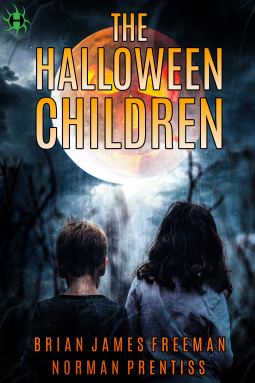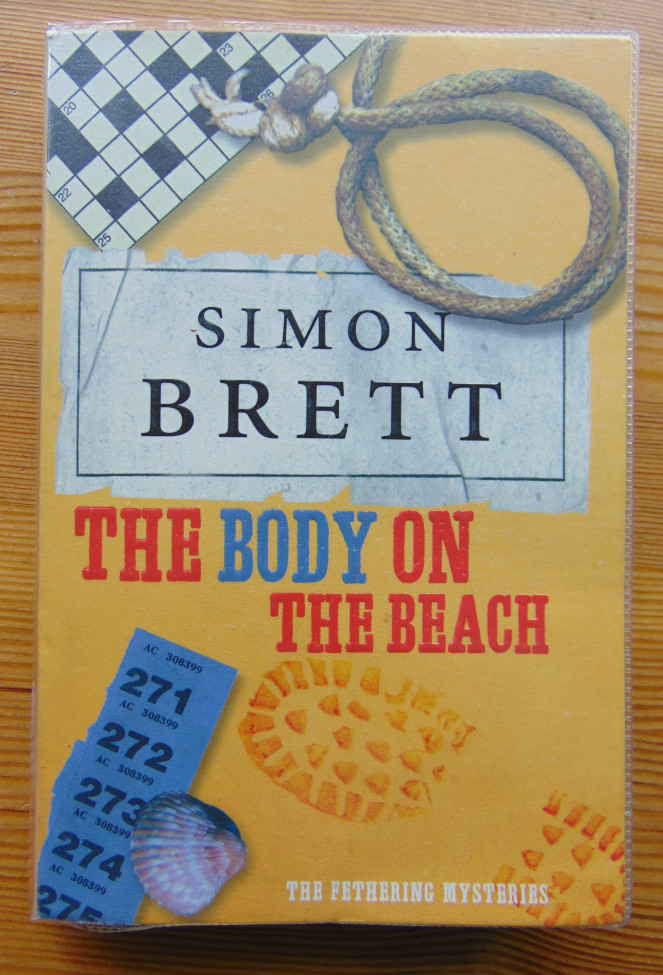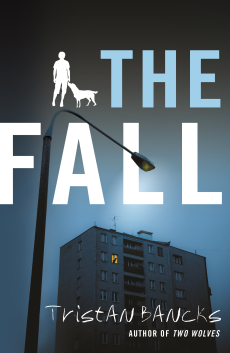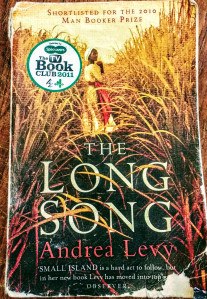 Cockfosters is the most recent collection of short stories by English writer Helen Simpson, who has made this form her specialty. Unless you’ve been to London, its title probably seems silly and slightly suggestive to you, which is the way the word struck me the first time I heard it on the London Tube, upon leaving Heathrow airport two summers ago.
Cockfosters is the most recent collection of short stories by English writer Helen Simpson, who has made this form her specialty. Unless you’ve been to London, its title probably seems silly and slightly suggestive to you, which is the way the word struck me the first time I heard it on the London Tube, upon leaving Heathrow airport two summers ago.
Seeing the book’s British cover in a Guardian review earlier this spring instantly brought to mind the mellifluous female tones that became the narrative voice of my trip to London in the summer of 2015.
“This is a Piccadilly line service to Cockfosters”
Words that still thrill me and evoke intensely happy memories and honestly, that’s what drew me to this lovely book. Had it not been for this happenstance, who knows whether I would ever have discovered Helen Simpson’s work. It’s the kind of thing that drives me crazy, because of course she’s a tremendous talent whose writing seems to speak directly to me (I’ve since read that this is a common reaction among her readers).
Helen Simpson has written six collections of short stories in roughly five-year leaps. In this latest edition, most of her characters are firmly middle-aged. They, like the author, are baby-boomers—a dominant generation whose influence is waning as it ages.
“Cockfosters”, the opening story, is a gentle, funny and effortless read and—because I was unfamiliar with the author’s work—a slightly misleading first encounter. In it, we follow Julie and Philippa, two old friends who have agreed to meet and spend the day together at the museum. But not long after stepping off the Tube at Green Park station, Julie realises that she has left her glasses behind on the seat, and so it is that their plans are thrown out the window in favour of getting back on the underground and following Julie’s glasses all the way back to the Supervisor’s office at Cockfosters.
It’s a cleverly conceived story, told almost in real time as the ebb and flow of the women’s conversation is marked by each station they pass: GREEN PARK, COVENT GARDEN, KING’S CROSS ST PANCRAS, HOLLOWAY ROAD, ARSENAL, TURNPIKE LANE, BOUNDS GREEN, ARNOS GROVE, OAKWOOD and finally, COCKFOSTERS.

It’s also an easy introduction to the leitmotifs of this collection of stories: an uncompromising and often witty reflection about the effects of time on passionate relationships, commitment and on the body itself, and about bildung—the lifelong process of education and self-cultivation. In “Berlin”, the last and longest story, Tracey, the main character, asks herself “Do you want to get old?”, a question which is whispered through each of the book’s nine stories.
On their Tube trek back to Cockfosters, Julie and Philippa banter about letting their hair go grey, stepping up their exercise regimen with Zumba classes, being sandwiched between children who still live at home and aging parents in need of greater care, and menopause and the waning of fertility, all of it filtered through the ignominy of being reduced to wearing varifocals (progressive lenses).
With just a couple of exceptions, Simpson’s stories are dialogue driven and flow so effortlessly that I was often surprised by their effect on me as I read.
 Helen Simpson
Helen Simpson
In just four pages, “Torremolinos” brings us two middle-aged men—one of whom is a convict feigning heart problems in order to get a small break from his life in prison—dealing with intimations of their mortality as they lie side by side in hospital beds.
 Insomnia
Insomnia
In “Erewhon”, the lone character lies quietly in bed, watching the clock that reads 3:29, 3:37, then 3:50, 4:08, then 4:21… unable to sleep any longer, worrying about such things as one child flirting with anorexia, another obsessed with video games, the media’s cruel treatment of aging. I empathized completely (my sleep is often as thin as paper—many women know this all too well), which is why I was so surprised to discover that the author had cleverly subverted gender roles from top to bottom, leaving me wide awake, smiling and thoughtful.
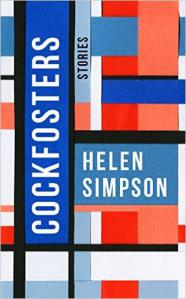 Author Helen Simpson
Author Helen Simpson
“Cheapside” is about the generation gap laid bare, and features a middle-aged lawyer, the story’s narrator, whose friend, a medical doctor (married to an MD) asks him to have a talk with his teenaged son who gives no indication of wanting to follow in his parents’ career footsteps. The narrator is meant to present a palatable alternative to the boy: the seductions of Law and an upscale lifestyle. It’s a situation ripe with wry comedic possibilities, and none are squandered by Simpson. But the story’s impact comes from everything the narrator reveals of himself to the impassively hostile boy about the rapaciousness of the twenty-first century, and about being trapped in an empty paradigm.
All of the stories in Cockfosters are beautifully crafted, accessible and remarkably substantive and they have been carefully ordered in the book, much the same way the play list on a musical album is chosen to create a desired or amplified effect. And thus, the book concludes with “Berlin”, not just the last, but the longest story.
Ostensibly, “Berlin” is a story about several middle-aged and older couples who find themselves on a tourist jaunt in Berlin to experience Wagner’s operatic marathon, the Ring Cycle—with German subtitles.
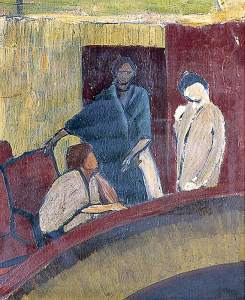 Etchells, Jessie; The Opera Box; Charleston
Etchells, Jessie; The Opera Box; Charleston
As with “Erewhon”, “Cockfosters” and so many of the stories in this collection, I got the feeling that the seed of “Berlin” had come in a flash of inspiration as simple as an advert in a travel magazine, an overheard conversation, or hearing the opera on the radio.
Tracey, the story’s central character, and her husband Adam are soon bewildered, a little irritated and slightly lost sitting through the first part of the Ring cycle. In giving a pep talk to her husband, Tracey provides the key to understanding both Wagner’s gargantuan opera and Helen Simpson’s story when she explains:
“Once you get that what they’re singing is their inner thoughts rather than normal speech then it’s a breeze.”
In this simple way, the structure supporting the rest of the story is explained and from then on, the narrative alternates between the conversations of the characters as they endure days of Wagnerian excess on the one hand, and on the other, Tracey’s thoughtful inner monologue—highlighted in bold italics—while she is deeply immersed in the music and which sometimes stays with her for hours after.
 Ricketts, Charles S.; Siegfried and the Magic Bird; Herbert Art Gallery & Museum;
Ricketts, Charles S.; Siegfried and the Magic Bird; Herbert Art Gallery & Museum;
In Simpson’s talented hands, the pairing of a towering, overblown and hypnotic opera with the dramatic moments of real life: birth, death, infidelity, betrayal, the cycles that seem unbreakable, the selfish desire to see everything in our lives go up in flames, all of these flow back and forth from the concert stage to Tracey, her husband and their travel companions.
At the end of “Berlin”, speaking of their week of Wagner, Tracey says to Adam:
“I didn’t exactly LIKE it. […] That seems the wrong word altogether. But I did think it was tremendous.”
She may also be speaking of her marriage, or of her life.
Cockfosters was tremendous, and I loved it.
Here’s more about the author, if you’re curious:
https://www.theguardian.com/books/2006/jan/07/featuresreviews.guardianreview9
Other books by Helen Simpson:
- Unguarded Hours (1990)
- Four Bare Legs in a Bed and Other Stories (1990)
- Dear George (1995)
- Hey Yeah Right Get a Life (2000)
- Constitutional (2005)
- In-Flight Entertainment (2010)
- A Bunch of Fives: Selected Stories (2012)
 Wagner’s Ring Cycle at the Met
Wagner’s Ring Cycle at the Met
Advertisements Share this:

